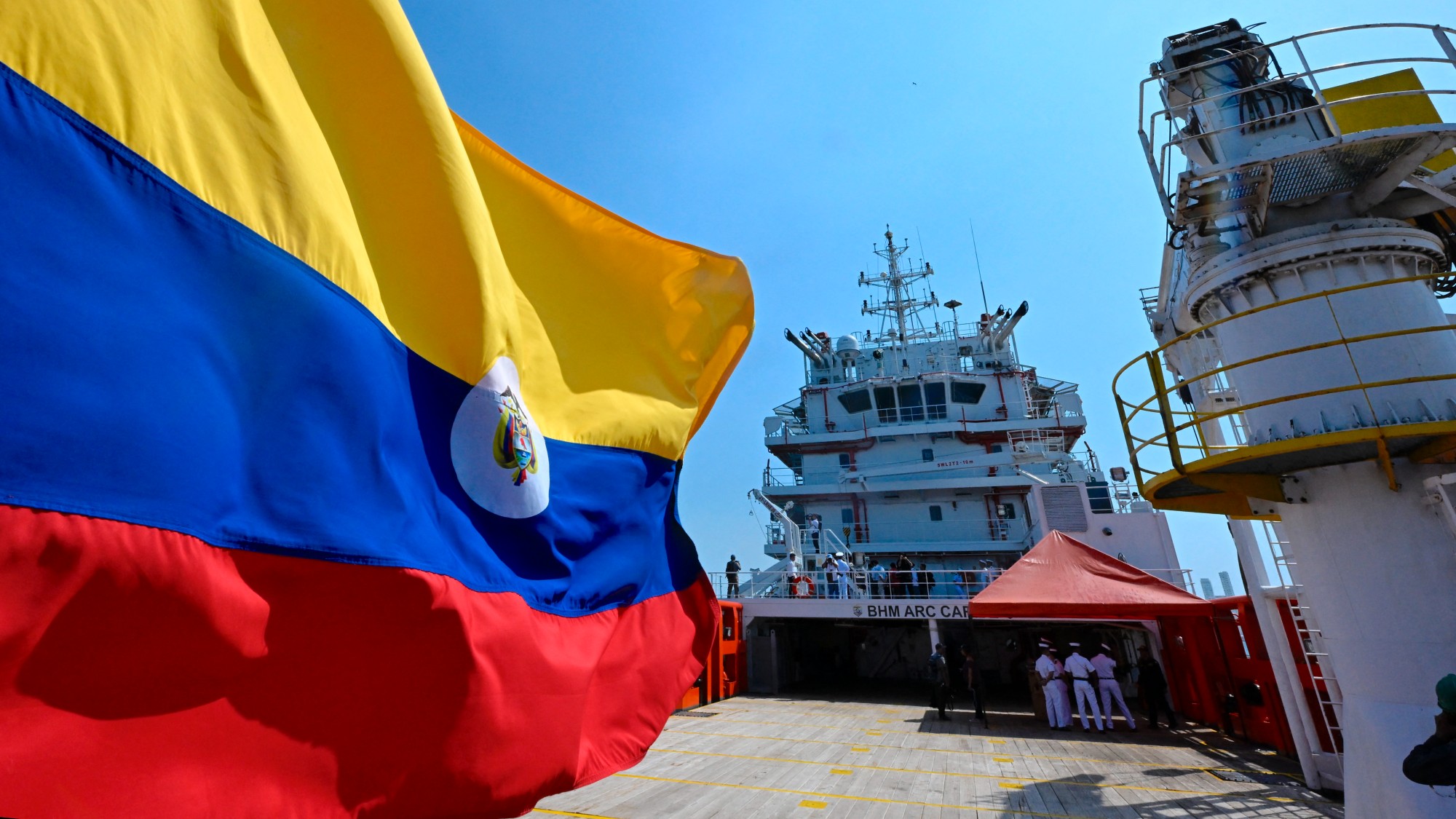The billion-dollar fight over the 'holy grail' of shipwrecks
Several nations have staked a claim to the San José's treasure but who has the right to it?

A free daily email with the biggest news stories of the day – and the best features from TheWeek.com
You are now subscribed
Your newsletter sign-up was successful
A long-running battle to recover a "holy grail" shipwreck and claim its billion-dollar treasure is intensifying.
The "fabulous cargo of gold, silver and precious stones" of the "San José", which sank off the coast of Colombia in the early 18th century, has "long been the stuff of treasure hunters' dreams", said Le Monde, and that has put it at the heart of a tug of war.
Three-way battle to stake claim
The multi-decked sailing ship faced disaster in 1708 as it sailed towards Cartagena, in northern Colombia. The crew was planning to cross the Atlantic to Spain, but a British warship intercepted it. The British wanted to seize the vessel and its treasure, but they accidentally fired a cannonball and sank the galleon.
The Week
Escape your echo chamber. Get the facts behind the news, plus analysis from multiple perspectives.

Sign up for The Week's Free Newsletters
From our morning news briefing to a weekly Good News Newsletter, get the best of The Week delivered directly to your inbox.
From our morning news briefing to a weekly Good News Newsletter, get the best of The Week delivered directly to your inbox.
In the 1980s, a US salvage company said it had located the remains of the "San José" and tried to split any proceeds with the Colombians, but the two sides couldn't agree on shares and a legal battle began.
In 2015, Colombia claimed it had found the ship separately from the US company. Colombia "has no doubts about its rights to the wreck", said Le Monde, as it "has been lying at a depth of 600 meters in its territorial waters for three centuries".
But Spain has also "staked its claim", said the BBC, arguing that the "San José" and its cargo remains state property, while Indigenous groups from Bolivia and Peru also say they are entitled to "at least a part of the booty", which might have been mined by their ancestors.
Earlier this year, Colombian officials began a $4.5 million (£3.4 million) recovery process, starting with what they describe as a "characterisation phase", with remote sensors and deep-diving robots exploring what is available on the seabed.
A free daily email with the biggest news stories of the day – and the best features from TheWeek.com
The matter is also now before the Permanent Court of Arbitration at the Hague. As part of its case at the court, the US salvage company, Sea Search Armada, has commissioned its own study of the cargo.
With so many competing claims, ownership of each item recovered will "probably have to be decided by independent experts", said Dr Ann Coats from the University of Portsmouth.
The holy grail of shipwrecks
The Colombian Minister of Culture, Juan David Correa, said that recovering the ship within the next two years is a priority for President Gustavo Petro. "The president has told us to pick up the pace," he said.
The question is what will be found. Describing the potential haul as "the biggest treasure in the history of humanity", Rahim Moloo, the lawyer representing Sea Search Armada, said it will include seven million pesos, 116 steel chests full of emeralds and 30 million gold coins. The company estimates its value at $7-18 billion.
But Carla Rahn Phillips, a historian who has written a book about the "San José", told the BBC it's "almost meaningless to try to come up with a number now", so "the estimates of the treasure hunters" are "laughable".
Although the "San José" is "often described as the holy grail of shipwrecks", the UN believes it's "just one of around three million sunken vessels on our ocean floor", said the BBC. "There is often very little clarity over who owns them" and their treasure.
Chas Newkey-Burden has been part of The Week Digital team for more than a decade and a journalist for 25 years, starting out on the irreverent football weekly 90 Minutes, before moving to lifestyle magazines Loaded and Attitude. He was a columnist for The Big Issue and landed a world exclusive with David Beckham that became the weekly magazine’s bestselling issue. He now writes regularly for The Guardian, The Telegraph, The Independent, Metro, FourFourTwo and the i new site. He is also the author of a number of non-fiction books.